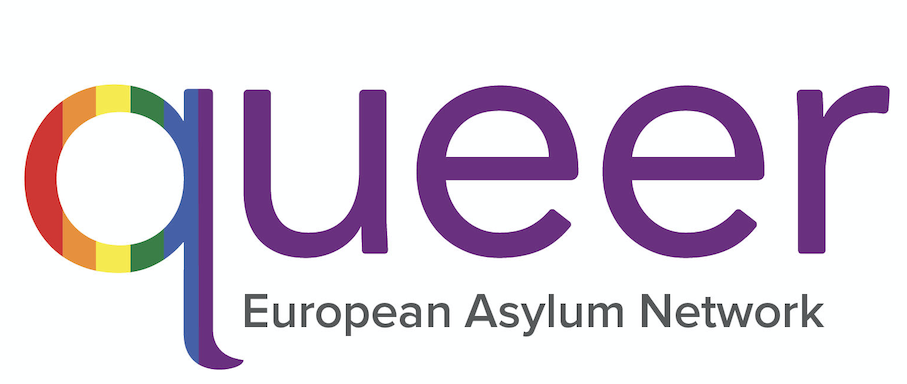2. June 2022 – Rethinking integration: Gender approach, equal opportunities and non-discrimination
Queer Asylum – Lesbian, gay, bisexual, trans, queer and intersex (LGBTQI+] people face very particular challenges when they decide to leave their countries and come to Europe as refugees or migrants. In this session our guests will discuss what is needed for queer refugees to have equal access to public services, especially to housing and the labour market. Particular attention will be paid to the opportunities and dangers of voluntary work in this field.
22. + 28. March 2022 – Transforming Systemic Violence: Experiences of Female and Non-Binary Identifying Queer Migrants I & II
This queer migration/asylum series examines how intersecting forms of systemic violence shape the experiences of forced migration and everyday life for female- and nonbinary-identifying queer migrants who are living in, or seeking admission to, the United States. The series frames systemic violence that these migrants face as being rooted in and reproducing settler colonialism, colonialism, racial capitalism, and heteronormative gender and sexuality. Presenters will identify the challenges and risks that forced migration and/or seeking asylum creates for female- and nonbinary-identifying queer people on the move, and explore making change.
25. November 2021 – Queer Asylum and the EU Dublin III-Return System: Challenges and Risks
The EU Dublin III-return system risks jeopardizing the transfer safeguards for LGBTIQ+ refugees and asylum seekers within the EU. This symposium examined the challenges the EU Dublin III-return system creates for LGBTIQ+ asylum claimants – particularly considering the increasingly politically motivated homo- and transphobia in some EU member states – and seeked to amplify best practices for the protection of LGBTIQ+ identifying asylum claimants within the EU.
How are rights-based protections enshrined within the European Charter of Human Rights (ECHR) and that apply to LGBTIQ+ refugees and asylum seekers living in EU reception countries uphold in the context of Dublin III? How should human rights standards be guaranteed within national and local legal frameworks and practices?, we asked.
15. June 2021 I Roundtable: The Istanbul Convention and Queer Women Seeking Asylum
Online
The roundtable discussed the following questions: What understanding of gender is evident in the Istanbul Convention? How is the Istanbul Convention implemented in Germany, especially with regard to refugee women? What experiences of violence do lesbian, bisexual, trans* and queer refugee women have?
9.-30. April 2021 I Online Event Series: “Queer Liberalisms and Marginal Mobility”
Online
This speaker series, organized by the Queer European Asylum Network and Migration Mobilities Bristol in collaboration with the Barnard Digital Humanities Center, features four events which brings into conversation the contributors to the special issue “Queer Liberalisms and Marginal Mobility.” The special issue will be published by Ethnic and Racial Studies in Spring 2022.
13. November 2020 I Recognition and Prevention of Violence against LGBTQI+ Persons on the Move
Online
This conference was committed to putting the lived experience of queer asylum at the centre of the conversation. It brought together LGBTQI+ refugees and persons seeking asylum, key academic scholars, practitioners, politicians, policy and civil society stakeholders to discuss and develop the relevance of the experiences of LGBTQI* asylum practices in Germany for the EU. .
16., 23. and 30. October 2020 I Workshop series Political Participation and Empowerment for LGBTIQ+ refugees and asylum seekers
Online
The Federal Foundation Magnus Hirschfeld organized the online workshop series “Get involved! Political Participation and Empowerment“ in October 2020.
The workshop series was primarily aimed at LGBTIQ+ refugees and asylum seekers who are or want to become politically involved. The workshops took part in small groups and dealt with the following questions: How do political processes work in Germany? How can I make my demands public? How do I find allies? How can I use social media strategically?
4. September 2020 I Covid-19 and Queer Asylum Discussion Forum
Online
This Covid-19 and Queer Asylum Discussion forum was a closed online event. Invited were politicians, policy makers and practitioners to discuss the policy implications of the Covid-19 and Queer Asylum virtual symposium which took place on 29. April 2020 and as summarized in our policy brief. The aim of this discussion forum was to highlight the marginal experiences of LGBTQI+ refugees during the pandemic and demand action on the part of policy makers and politicians.
22. July 2020 I Online discussion on equal rights in asylum procedures for lesbian and queer refugee women on 22 July
Online
A violation of the freedom of sexual orientation and gender identity constitutes a right to asylum in Germany – nevertheless, statistically this right is denied to black lesbian and queer women who suffer oppression and persecution in their home countries because of their sexuality. Dr. Mengia Tschalaer (University of Bristol) found that this discrimination is based on stereotypical notions of lesbian sexuality which obviously do not correspond to the life realities of rejected asylum seekers. What has to change to reduce the structural discrimination of black lesbian and queer refugee women?
13. July 2020 I This is Who I Am: A Performance of LGBTQI+ Asylum Testimonies in the UK
Online
‘This Is Who I Am’ was presented by the theatre company ice&fire, which specialises in exploring human rights stories through performance. This virtual performance featured a reading of first-hand accounts of LGBTQI+ people’s experiences of seeking refuge in the UK and going through the UK asylum process.
29. April 2020 I Online Symposium: “COVID-19 and Queer Asylum
Online
COVID-19 & Queer Asylum was a virtual symposium featuring NGO representatives, lawyers and judges working on queer asylum, LGBTQI+ activists and LGBTQI+ persons seeking asylum/refugees from Germany. The Symposium consisted of three panels followed by a information session led by lawyers and LGBTQI+ asylum practitioners that allowed for a Q&A around COVID-19 and LGBTQI+ asylum.
